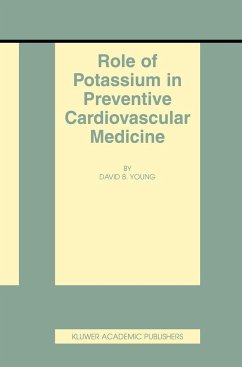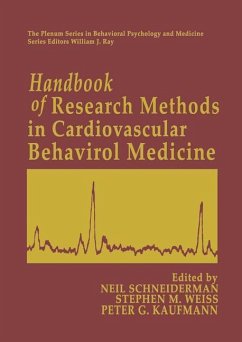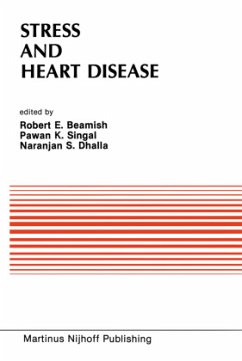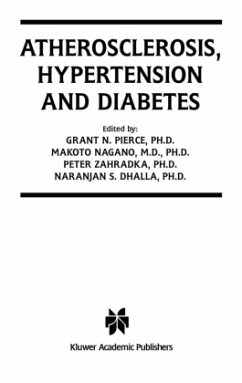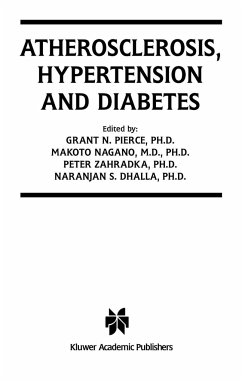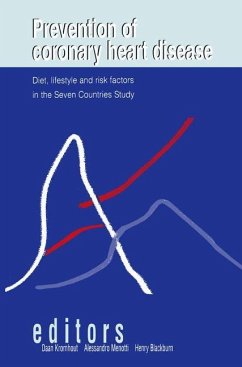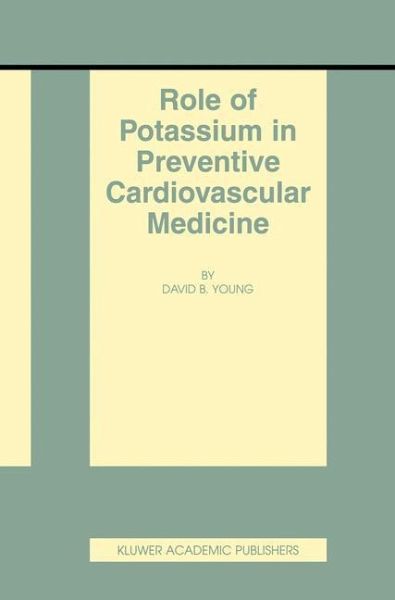
Role of Potassium in Preventive Cardiovascular Medicine
Versandkostenfrei!
Versandfertig in 6-10 Tagen
113,99 €
inkl. MwSt.
Weitere Ausgaben:

PAYBACK Punkte
57 °P sammeln!
Role of Potassium in Preventive Cardiovascular Medicine: Information related to this question has accumulated for nearly a hundred years, from work in cellular physiology, experimental studies in animals, clinical trials, and from population and epidemiological investigations. Because of the importance of integration of this diverse body of information, the most significant findings are brought together in this book. This body of information provides emphatic support for the importance of high dietary potassium intake as a means of reducing the risk of cardiovascular diseases, as it provides ...
Role of Potassium in Preventive Cardiovascular Medicine: Information related to this question has accumulated for nearly a hundred years, from work in cellular physiology, experimental studies in animals, clinical trials, and from population and epidemiological investigations. Because of the importance of integration of this diverse body of information, the most significant findings are brought together in this book.
This body of information provides emphatic support for the importance of high dietary potassium intake as a means of reducing the risk of cardiovascular diseases, as it provides abundant evidence that potassium depletion has significant, deleterious influences that increase the risk of hypertension, atherosclerosis, heart failure, and stroke.
At this time we have the results and data required to strongly recommend dietary modification to increase potassium intake. But making the recommendation will only be the first step; convincing the population to undertake the change in eating patterns will be challenging, and will require concerted actions by government, the medical community, and the food and beverage industries. The outcome promises to be well worth the investment.
`This book is an excellent source of current information on the many roles of potassium in cardiovascular disease. It succinctly mixes basic physiology and clinical aspects in a manner that will make it of great value to both researchers and clinicians.' Norman M. Kaplan, M.D., Professor of Internal Medicine, University of Texas Southwestern Medical Center, Dallas, TX
This body of information provides emphatic support for the importance of high dietary potassium intake as a means of reducing the risk of cardiovascular diseases, as it provides abundant evidence that potassium depletion has significant, deleterious influences that increase the risk of hypertension, atherosclerosis, heart failure, and stroke.
At this time we have the results and data required to strongly recommend dietary modification to increase potassium intake. But making the recommendation will only be the first step; convincing the population to undertake the change in eating patterns will be challenging, and will require concerted actions by government, the medical community, and the food and beverage industries. The outcome promises to be well worth the investment.
`This book is an excellent source of current information on the many roles of potassium in cardiovascular disease. It succinctly mixes basic physiology and clinical aspects in a manner that will make it of great value to both researchers and clinicians.' Norman M. Kaplan, M.D., Professor of Internal Medicine, University of Texas Southwestern Medical Center, Dallas, TX





